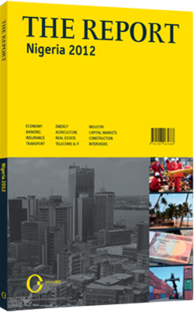A new direction: Draft policy will lay out the technology sector’s future
The future structure of information and communications technology (ICT) in Nigeria is taking shape. Following national elections in 2011, a new minister, Omobola Johnson was selected to lead the Ministry of Communications Technology (MCT), the main government body overseeing the sector. The emergence of a draft national policy on ICT in the wake of the elections has also been seen as a positive step, bringing clarity and direction to a rapidly changing sector.
BROAD GOALS: The draft plan speaks plainly about the problems of the past: “ICT convergence has not yet been reflected in Nigeria, where the institutions that regulate and/or develop the ICT sector still function as distinct actors in the industry, without much coordination.” The convergence of IT, telecoms, broadcasting and postal services into one regulatory body is now seen as the best way to provide effective public management of the sector in the years ahead.
Although still in a draft format, it is possible to outline the country’s future IT landscape. Most of the main policy objectives are widely known, such as bringing together various elements of the sector under one regulatory body and the ratification of a new ICT law to provide the legal framework. Universal access to ICT such as internet, radio and telecoms is the ultimate aim of this reorganisation, which in turn will help establish a basis for the digital economy the government is seeking to build (see Media chapter).
SPECIFIC INITIATIVES: Other policies are more specific and may have greater long-term effects if implemented. Ranking 10th on the list of policy objectives is the elimination of multiple regulation and taxation in the ICT sector, which the draft policy says “serves as disincentives to investors”. Those in the private sector are inclined to agree. “There are numerous federal, state and local taxes faced by operators at the moment. Moreover, there is little coordination among government ministries or agencies, and the mobile market is viewed as a huge revenue generator. In some cases this has resulted in litigation where a federal or state agency insists upon a certain tax and then locks up a base station, causing congestion in the neighbourhood. The operator is then forced to defend themselves in court, which in turn results in significant amounts spent on legal fees,” Akinwale Goodluck, the corporate services executive, responsible for legal, regulatory and reputation management at MTN, told OBG. “This differs widely across the country, with some states that are much less well structured aggressively pursuing such tax policies.”
PLUGGING IN: Another important area of reform the draft report mentions is the power sector. Accelerating power sector reforms that are critical to the ICT industry is the sixth strategy identified as part of the draft report’s overall objectives on broadband infrastructure development. The current state of the power sector is one of the main obstacles to extending terrestrial fibre-optic cables across the country. Diesel fuel costs and the need to change generators every 2500 hours have both played a role in the past in reducing the ability of operators to invest in their networks. Although all four main operators have outlined investment plans for extending networks under the National Communications Commission, power costs in Nigeria are still a factor that need to be addressed to encourage future foreign investment.
Finally, the draft policy’s focus on research and development is also welcome. So far, much of the impetus for the cultivating new ideas and technologies has come from the private sector, but the policy document identifies strategies for developing closer links between industry, academia and research bodies that would, if acted upon, encourage the creation of more local content, for example. Fine-tuning and negotiations between industry stakeholders are required before the draft policy is implemented, but the most encouraging part of the plan is that it signals that the government takes ICT seriously. With an ICT law in place and all parts of the sector unified under one regulator, Nigeria can drive the industry forward.
You have reached the limit of premium articles you can view for free.
Choose from the options below to purchase print or digital editions of our Reports. You can also purchase a website subscription giving you unlimited access to all of our Reports online for 12 months.
If you have already purchased this Report or have a website subscription, please login to continue.

